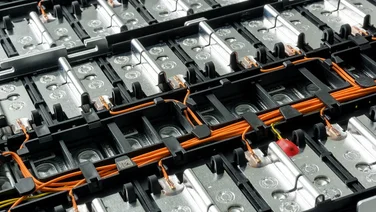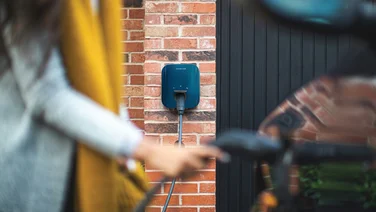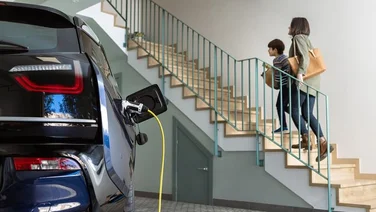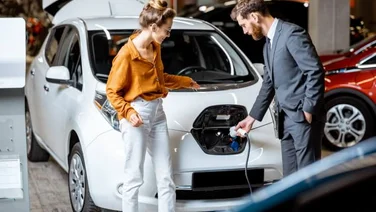We receive a small fee from trusted installers when you request a quote through our site. This helps us keep our content independent, well-researched and up to date – Learn more
- What is the EV chargepoint grant?
- What are the types of OZEV grants available?
- How much could the EV chargepoint grant save me?
- How can I qualify for OZEV’s EV chargepoint grant?
- Which vehicles are compatible with the Electric Vehicle Homecharge Scheme?
- Has the EV chargepoint grant been a success?
- Will there be anything after the EV chargepoint grant?
- Summary
- Home charging typically saves you £467 per year over charging in public
- The scheme subsidises 75% of the cost of a home recharging station
- It’s only open to people who own flats, and people in rented accommodation
The Electric Vehicle Homecharge Scheme, now known as the EV Chargepoint Grant, closed to house owners on 31 March 2022.
It is now only open to people who own flats, and people in rented accommodation.
The Electric Vehicle Homecharge Scheme has now been rebranded as the EV chargepoint grant, and is only on offer for people who rent or own a flat. But if that includes you, you could still save money on the cost of installing an EV chargepoint.
And if you want to see how much a charging point costs for you without the grant, we’ve created an easy-to-use comparison tool. Simply provide a few details about your home, and we’ll pass them on to our expert installers.
Get free EV charging point quotes
Answer a few quick questions, and our trusted installers will send you bespoke EV charging point quotes – for free.

What is the EV chargepoint grant?
The EV chargepoint grant is a government initiative that encourages more of the public to buy electric vehicles.
It subsidises 75% of the cost of buying and installing a home recharging station, up to £350 (including VAT).
To qualify, you must:
- Own a flat or live in rented accommodation
- Plan to use the charger on one of the 254 vehicles which were on the eligible vehicles list
- Be the vehicle’s primary owner
- Prove you already have an eligible vehicle, or have purchased one that will be delivered within four months of the charger’s installation date
- Have dedicated off-street parking at your property
The Office for Zero Emission Vehicles (OZEV) – formerly the Office for Low Emission Vehicles – runs the government scheme.
OZEV has explained it created the grant because “most plug-in vehicle owners will carry out the largest proportion of their charging at home.”
The scheme was originally available to homeowners, and is now being offered to a different sector of the market.
If you want to see which charger would be best for you, just check out our analysis of the best electric vehicle home chargers.
How does it work?
Once you’ve made sure you qualify for the grant, decide which of the best electric vehicle chargers you want, then look through this list of approved installers and contact your chosen company.
The installer will claim the government’s subsidy on your behalf, so all you have to do is pay the discounted rate.
Then you can enjoy all the benefits that come with a home charger – mainly that it’ll typically save you £447 per year over charging in public.
We explain more of these benefits on our Electric Vehicle Statistics page.
What are the types of OZEV grants available?
We’ve covered the basics of the EV chargepoint grant, but the good news for companies and charities out there is that there’s another grant that’s still available, specifically for organisations.
Here’s a few listed below, but you can also to our page to find out about all the current EV charging point grants.
The Workplace Charging Scheme (WCS)
The WCS helps organisations which want to provide a free charging option to staff members who drive electric vehicles.
If you’re eligible, the government can cover 75% of your charging point costs, up to £350.
Sound familiar? Well, there’s a twist that differs the WCS from the EVHS: the scheme will cover a maximum of 40 chargers across all the organisation’s sites.
To qualify for this initiative, your organisation must be:
- Located in Britain (i.e. England, Wales, Scotland, or Northern Ireland)
- A registered charity, business, or in the public sector
- A public authority, or a group that’s received less than €200,000 (£180,800) of public support in the past three fiscal years
- Able to explain either your need for charging point/s, or your plan to encourage or order your staff to start driving electric vehicles
- Able to access dedicated off-street parking
- The owner of the property, or able to get permission from the owner/s for the installation of charging point/s
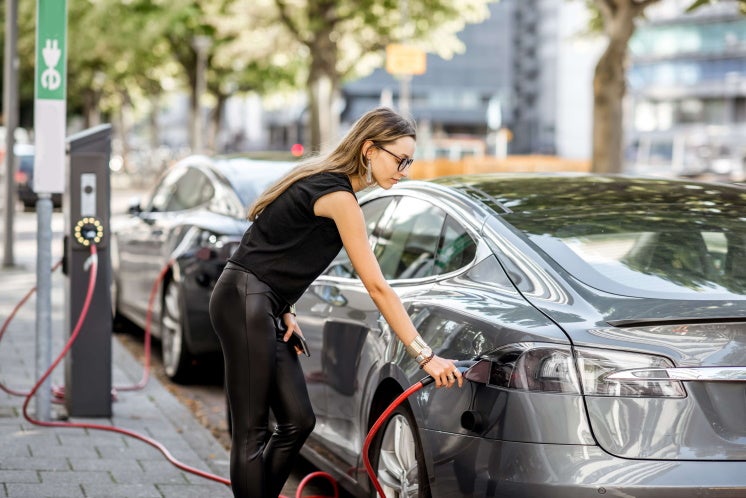
How much could the EV chargepoint grant save me?
The EV chargepoint grant could save you 75% of the cost of buying and installing a home charger, up to £350.
And if the scheme convinces you to buy an electric vehicle, it could save you even more.
You can now cut your fuel costs by £715 per year if you go from petrol to electric, according to our calculations.
Hopefully, grants like this will persuade more people to adopt electric vehicles because as our National Home Energy Survey showed, support could definitely be higher. Just 55% of Brits would want an electric vehicle even if it were free.
How can I qualify for OZEV’s EV chargepoint grant?
You can qualify for an EV chargepoint grant by matching one of the following criteria:
- You own an eligible new or second-hand electric vehicle, and haven’t applied for any past chargepoint schemes
- You’ve ordered an eligible vehicle, and can prove it
- You’ve leased an eligible vehicle for at least six months
- You’ve been assigned an eligible company vehicle for a minimum of six months
- Your employer had named you as the primary user of an eligible vehicle for at least six months
How do I claim it at home?
If you own or rent a flat, just contact one of the companies on this list of approved installers.
Your installer will claim the EVHS grant on your behalf, and pass the savings on to you.
Then you won’t have to worry as much about running out of charge because of your electric vehicle’s range, because you’ll have a charger at home.
How do I claim it for my business?
You can’t claim the EV chargepoint grant for your business, but you can apply for a WCS grant.
The application form is available online – but before you fill it in, check the dedicated WCS section above to make sure you qualify.
Which vehicles are compatible with the Electric Vehicle Homecharge Scheme?
254 vehicles currently qualify for the EVHS – you can see if yours is compatible by checking this eligible vehicles list.
And if you’re looking to buy an eligible vehicle, there’s a wide selection.
You can choose from more than a dozen established car brands on the list, from Citroen to Chevrolet, Porsche to Peugeot, and Volvo to Volkswagen.
If you can think of a manufacturer, it probably sells an eligible vehicle.
You can also buy from companies that specialise in making electric vehicles, like BD and BYD.
Has the EV chargepoint grant been a success?
The EV chargepoint grant – and its previous guise, the EVHS – have been used to discount the installation of 236,697 chargers, according to the latest government data.
The scheme has been funded to tune of £104.5 million in that time, and 30% of that total – £31 million – has been given out in the past 12 months.
The scheme has been most popular in the South East and East of England, where you can find 45,345 and 26,216 EV chargepoint grant devices, respectively.
The South East now has 1,230 EV chargepoint grant devices per 100,000 households – one for every 81 homes – which is the highest in the country.
But while the scheme has certainly made a positive impact, it’s not enough.
There are 40.2 million registered cars in the UK, meaning the EV chargepoint grant has been used to fuel just 0.6% of cars on these shores.
And the grant has only been claimed for 13% of the 1.8 million electric vehicles currently registered in the UK, showing how many customers don’t fulfil the criteria – or perhaps just don’t know it’s available.
The truth remains that it’s not the cost of an electric car charger (£1,000 on average, without the grant) that puts off consumers – it’s the cost of the car.
The government suddenly ended its plug-in grant in June 2022, effectively making electric vehicles £1,500 more expensive in one fell swoop.
The average non-luxury electric car now costs £33,000, which is still out of many people’s price range.
Will there be anything after the EV chargepoint grant?
The government’s enthusiasm for funding personal electric vehicle purchases is clearly waning, with the EV chargepoint grant no longer serving house owners and the plug-in grant discontinued.
In the government’s Net Zero Strategy, published in October 2021, £620 million of new funding was dedicated towards “zero emission vehicle grants and EV infrastructure.”
We have asked the government for the date, duration, and value of these new grants, but a spokesperson refused to give any specifics, saying only that there would be “more details in due course.”
We’ll update this page when the government reveals what it has planned.
If the government is serious about electric vehicles, now is the perfect time to set up a significant discount, as France and Germany have by offering consumers €10,000 (£8,500) and €9,000 (£7,700) grants, respectively.
In September 2021, in the midst of the petrol crisis, demand for electric vehicles soared. A record 32,721 purely electric cars were registered across the month.
That figure was 49% higher than September 2020 – in fact, it was only 5,000 shy of the total number for 2020, according to the Society of Motor Manufacturers and Traders (SMMT).
And over the past 12 months, the number of electric cars in the UK has risen by more than it did in the previous four years – combined.
Summary
If you’re looking to get a charging point installed at your flat or rented property, you could save £350 on the entire process, simply by contacting an eligible installer.
And if you represent an organisation looking to get its staff or fleet to go electric, the Workplace Charging Scheme can save you up to £350 on as many as 40 charging stations.
Both schemes are clear win-wins for both you and the environment – so you should use them if you can.


